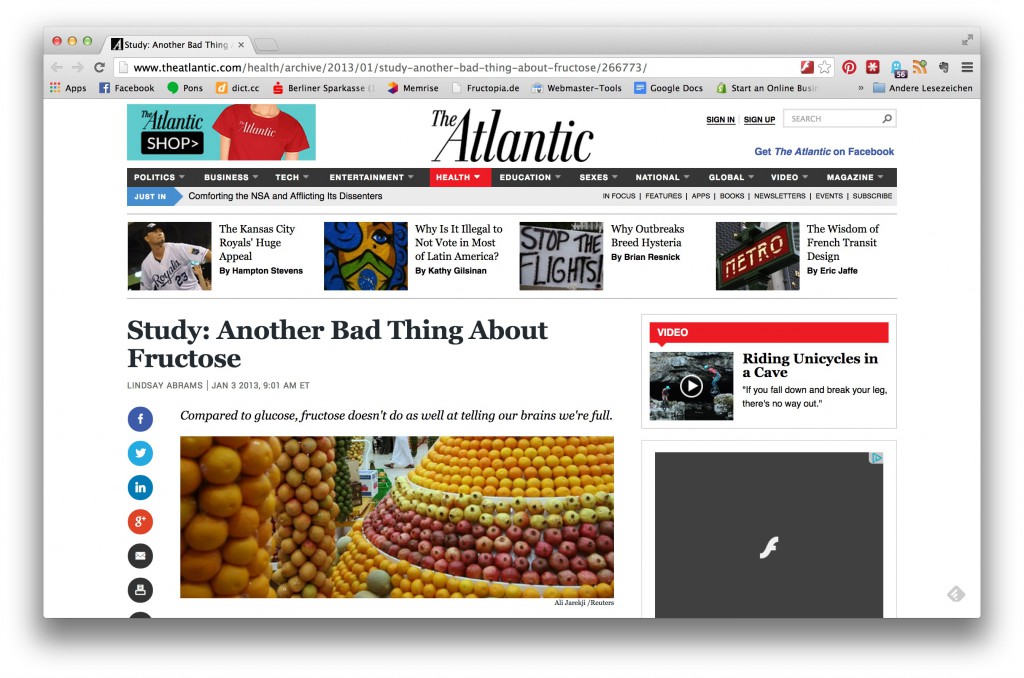
I found a really interesting article about the consumption of fructose on theatlantic.com and didn’t want to deprive you of it. Seeing an article about this topic at The Atlantic gives me the impression that fructose has finally arrived in mass media and therefore in mass consciousness. Which is a good thing after all, don’t you think?
The article itself does not cover fructose malabsorption in particular, but research on fructose in general and is interesting nevertheless. And it makes me feel really good about keeping my fructose intake at a minimum. So why is that?
The cited research suggests that, compared to glucose, fructose doesn’t tell our brains when we’re full:
The participants in the study “who drank the glucose showed reduced blood flow to areas of the brain associated with appetite, motivation, and reward processing — the parts that signal hunger. They also tested for higher levels of the hormones that contribute to satiety.
In other words, the brain appeared to know when to shut down cravings for glucose once the body’s requirement for the energy source had been met. Fructose, however, did not have this effect.”
CONCLUSION: Fructose appears to affect the brain differently than does glucose, failing to signal fullness and thus potentially contributing to overeating.
At first this doesn’t seem to alarming. But with added fructose in most of processed foods it could explain tendencies to overeating. You will eat but won’t feel satisfied which in turn leads you to eating more again.
Head over to the atlantic to read the article: “Study: Another Bad Thing About Fructose“






Leave a Reply